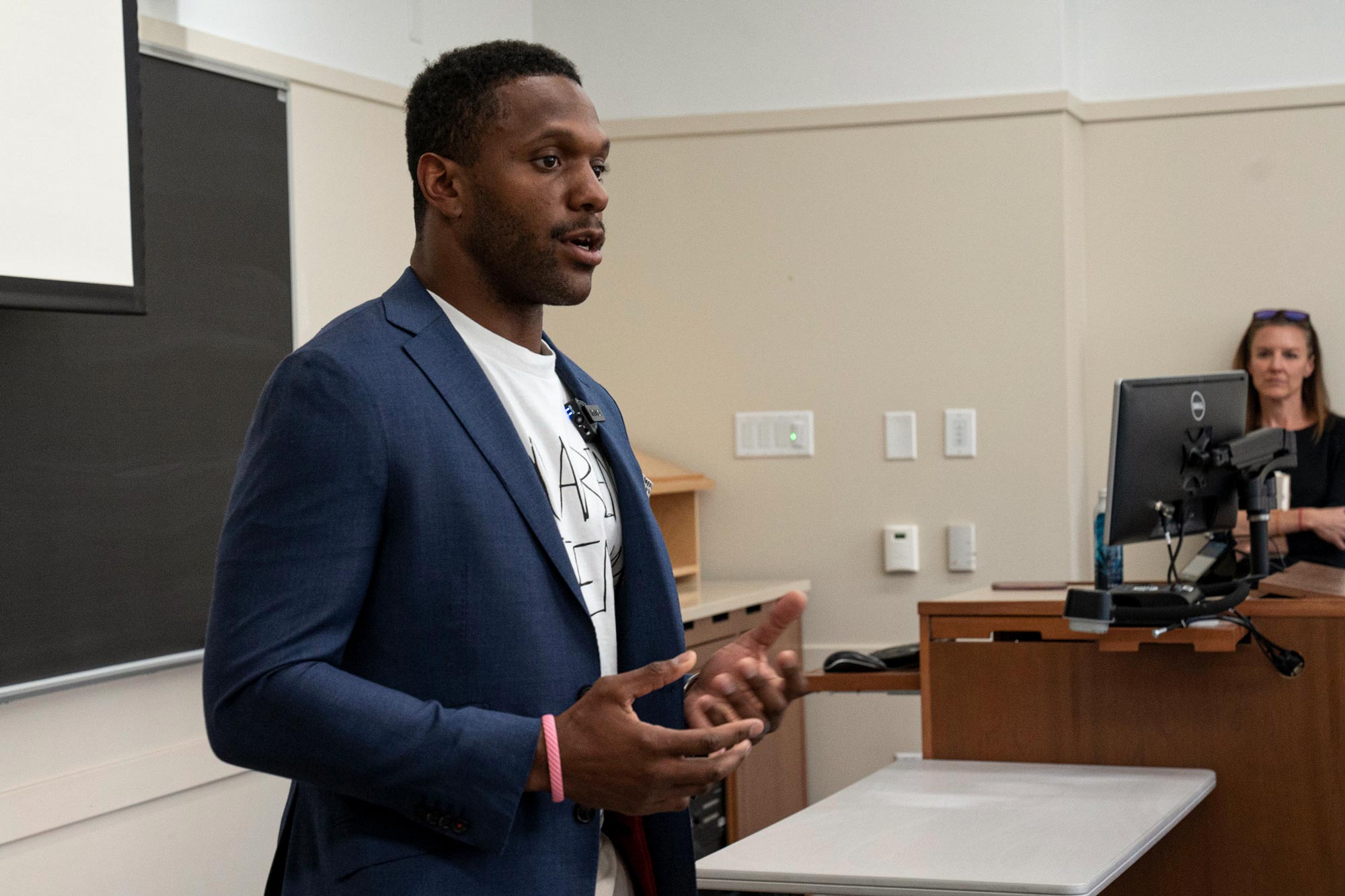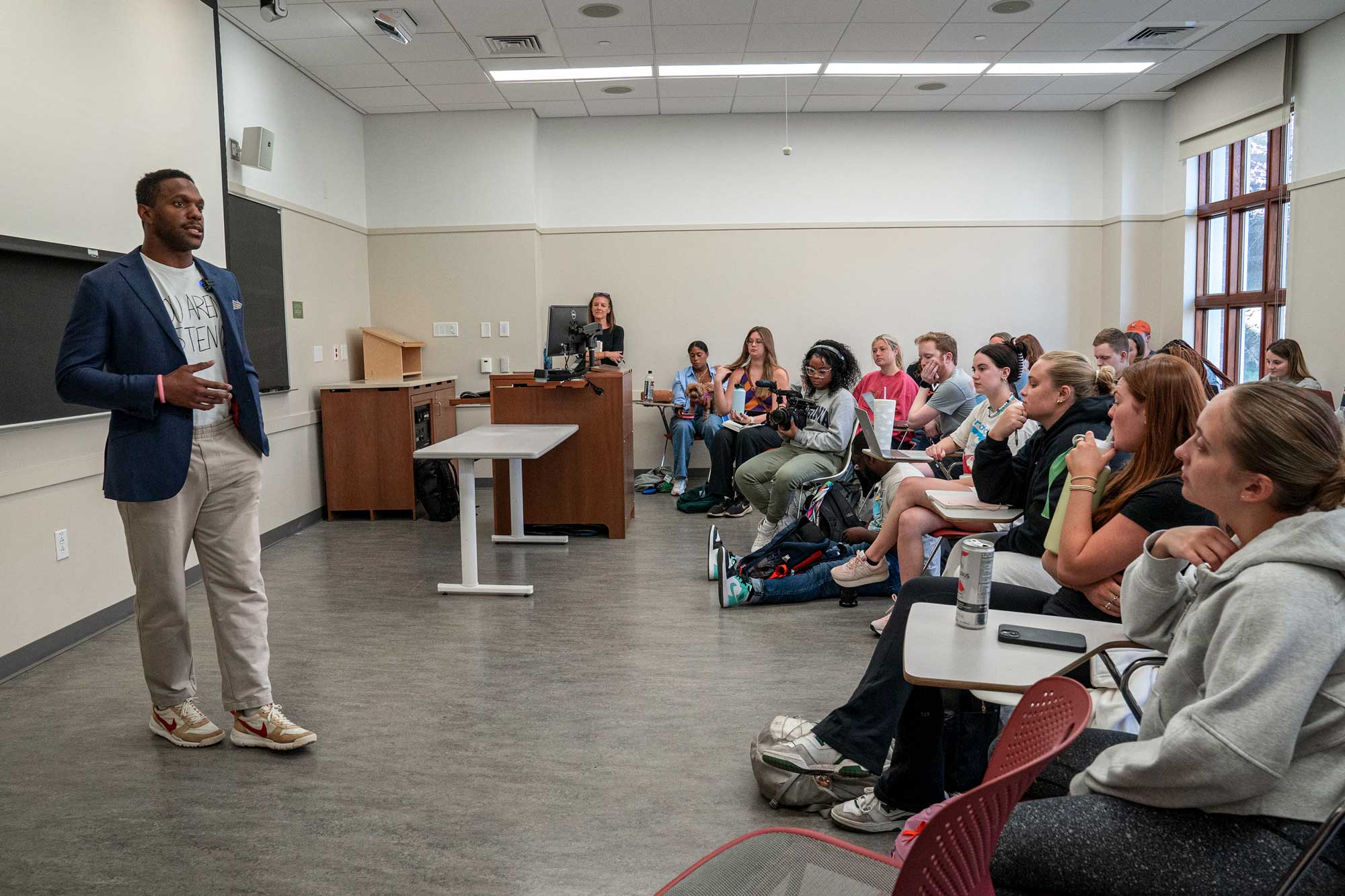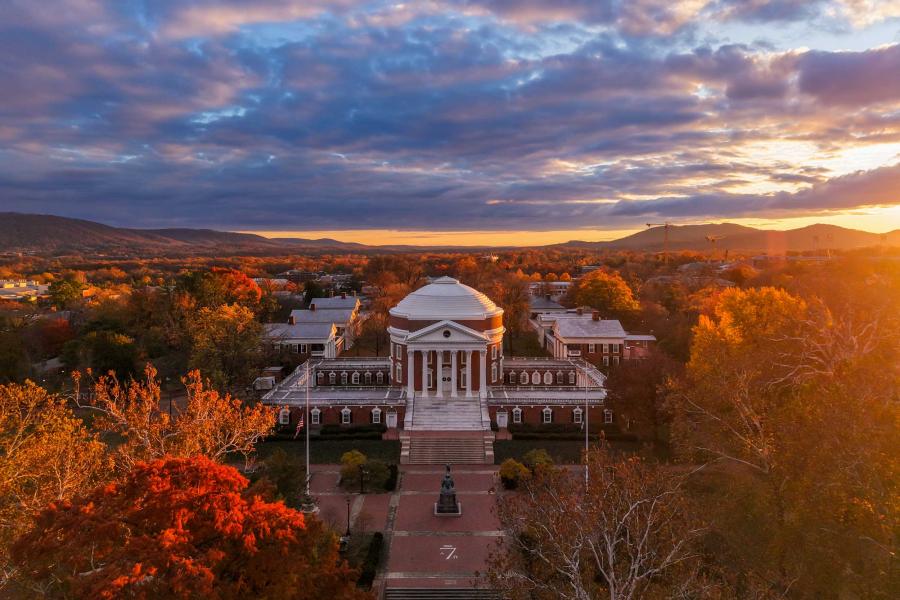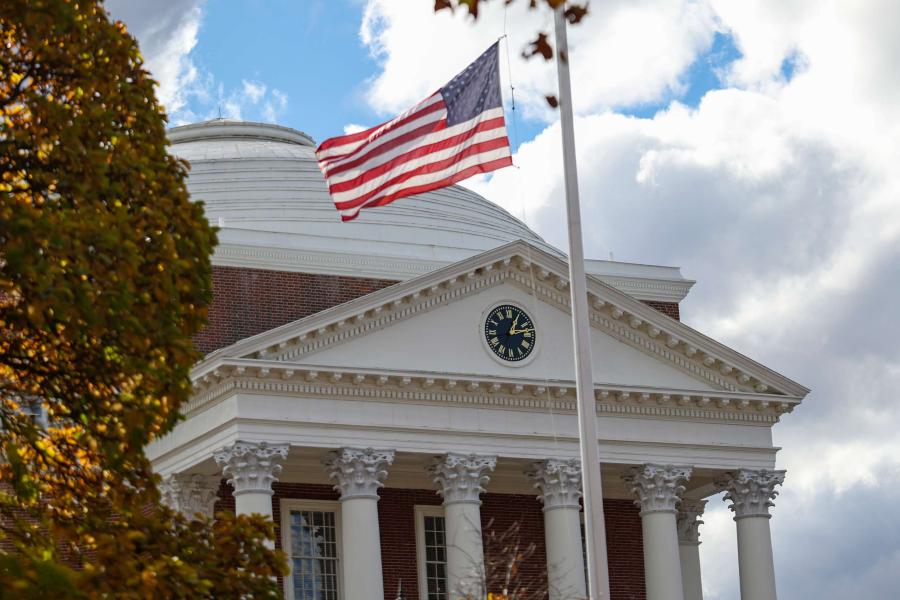But statistics only tell a part of McLeod’s story. He’s a main contributor off the field through his Change Our Future foundation that aims to lead the movement on advancing programs, opportunities and resources that give youth, families and communities a path toward a healthy and hopeful future. McLeod is also a former board member of the Players Coalition, an independent nonprofit that has worked with more than 1,400 professional athletes, coaches and owners across multiple sports leagues on how to educate and advocate for reform.
In 2020, McLeod was the Eagles’ nominee for the Walter Payton NFL Man of the Year Award, an honor that recognizes a player for outstanding community service activities off the field.
McLeod, a Maryland native who currently resides in Philadelphia, spent an hour with Clay’s class, answering numerous questions from students. It was an impactful visit, Clay said.
“To be able to hear firsthand from professional athletes like Rodney is such an important and impactful way for the students to understand and think critically about what that activism looks like in 2023,” she said.
UVA Today caught up with McLeod afterward to learn more about his work in the community, his UVA experience and his future in football.
Q. Why does activism mean so much to you?
A. I think it matters to me because of the people you’re fighting for and the impact that you’re hoping it leaves on that particular community, individual, whatever it might be. For myself, when I think about a lot of the issues that exist, the Black community is at the forefront of a lot of these issues that I’m addressing. And I feel like I have an obligation, because of my platform, to use my voice to be able to try to bring some awareness to the issues at hand and how to find solutions surrounding those issues.
Q. Why did you create your foundation?
A. The reason my wife [Erika McLeod, a 2013 UVA alumna] and I created Change Our Future was simply because of the effects it’ll have on our youth and understanding that they are our future. So we want to start to form those future leaders of tomorrow; we want to be able to have representation in career fields that have lacked minorities. We want to be able to change the cycles of families. We want to have new generations of college students, similar to my story, and break that cycle and start a new current that creates generational wealth.
If we want things to change, the best way to do it is giving these students a pathway to success.






